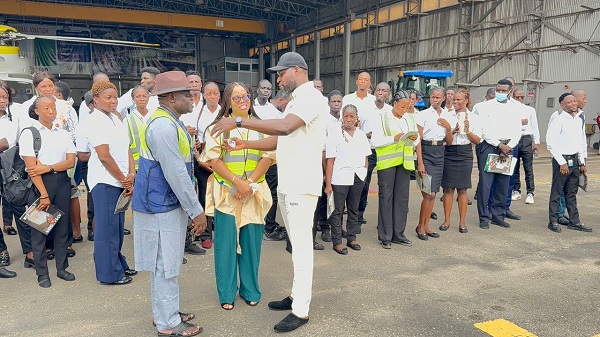Aviation industry stakeholders are praising the efforts of President Bola Ahmed Tinubu and Minister of Aviation and Aerospace Development, Festus Keyamo. Their initiatives aim to improve Nigeria’s airport infrastructure and enhance air travel across the nation. With a focus on modernization, these efforts are vital for boosting the aviation sector and its economic contributions.
Modernizing Airport Infrastructure
The Nigerian aviation industry has faced significant challenges over the years. Many airports have suffered from inadequate facilities, outdated technology, and insufficient maintenance. Recognizing these issues, President Tinubu’s administration has prioritized infrastructure development. Under Keyamo’s leadership, the Ministry of Aviation is implementing comprehensive plans to modernize airports nationwide.
Stakeholders in the aviation sector have expressed optimism about these developments. They believe that improved airport infrastructure will facilitate better air travel experiences for passengers. Upgraded facilities can also lead to increased passenger traffic and enhance Nigeria’s position as a regional aviation hub.
Keyamo has outlined specific goals for the aviation sector. These include improving runway safety, enhancing passenger amenities, and integrating modern technology into operations. By addressing these key areas, the government aims to create a more efficient and reliable aviation environment.
Investments in airport infrastructure are expected to stimulate economic growth. Improved airports can attract international airlines, boosting tourism and trade. This, in turn, will create jobs and support local businesses, contributing to the overall economic development of Nigeria.
Collaborative Efforts for Sustainable Growth
The Tinubu administration is committed to working collaboratively with industry stakeholders. Engaging private sector partners is crucial for achieving the ambitious goals set for the aviation sector. By fostering public-private partnerships, the government can leverage additional resources and expertise.
Industry experts emphasize the importance of sustainable practices in airport development. This includes eco-friendly construction methods and energy-efficient technologies. By prioritizing sustainability, Nigeria can set a positive example in the global aviation community.
In addition to infrastructure improvements, the government is focusing on regulatory reforms. Streamlining processes and enhancing safety standards will further strengthen the aviation sector. These reforms are essential for building trust among passengers and international partners.
Moreover, the government is investing in training and capacity building for aviation professionals. A skilled workforce is vital for maintaining high standards in airport operations and management. By developing human capital, Nigeria can ensure the long-term success of its aviation initiatives.
In conclusion, President Bola Ahmed Tinubu and Minister Festus Keyamo are taking significant steps to address Nigeria’s airport infrastructure gaps. Their efforts to modernize facilities and engage stakeholders are crucial for the aviation industry’s growth. By focusing on sustainable practices and regulatory reforms, Nigeria aims to enhance its aviation sector and promote economic development. As these initiatives unfold, the potential for a revitalized aviation landscape in Nigeria is becoming increasingly clear.




